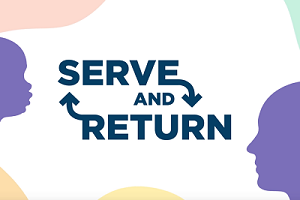Tips & Useful Links for Parents
Fathers are important
- Spend more time with your child reading books, playing games, engaging in outdoor activities, working on school projects, and talking about their friends and schools. Fathers’ involvement is linked to your child’s healthier social-emotional well-being and learning.
- Fully utilize the paternity leave benefit. Taking 2 weeks or more leave when your child is born contributes to better family relations, higher marital satisfaction, fewer child behavior problems and better learning results.
Practice positive parenting behavior
- Avoid using physical punishment. Physical punishment is linked to more behavior problems for children.
- Focus on positive reinforcement to reduce behavioral problems in children. Celebrate your child’s successes, big or small, to build their confidence and keep them motivated.
- Positive guidance and warm support can promote children’s emotional resilience to overcome stressors.
- Give specific instructions and clear explanations to guide your child to practice self-control, which is linked to fewer behaviour problems and better learning.
- Managing your own emotions, breaking bad habits, and inhibiting temptations to be your child’s role model.
Create a clean and supportive home environment
- Keep your home clean, clutter-free and stimulating
- Filled your home with books, board games, puzzles, and other educational toys
- Foster an environment where your child feels safe expressing his/her emotions and thoughts.
Give your child nutritious food
- Avoid sugar-sweetened beverages, high fat, and high carbohydrate food
- Serve more vegetables and fruits. Detailed guidance on healthy eating habits across ages can be found at https://www.healthhub.sg/programmes/parent-hub
- Families in need of food assistance can request cooked food or essential food staples from Food Bank Singapore’s feeding partners located island wide. The Feeding Directory: https://findfoodsupport.sg/
Engage in more outdoor activities with your child
- Spend more time with your child playing in the park, riding bikes, gardening, and so on to avoid overweight and obesity
- Outdoor activities and fresh air are good for children’s health, emotional and brain development too
Reduce daily screen time
- To avoid overweight and obesity and improve your child’s social skills and emotional well-being
Set consistent boundaries for your child
- Apply clear rules and consequences consistently to help children understand the cause-and-effect relationship between their actions and the outcomes.
- Set rules for children’s bedtime, play and work time, screen time, and snacks
- Guide social media usage - talk to your child about what they do online, discuss contents on social media, and know who they are interacting with online
Help develop your child’s interests
- Explore learning opportunities outside of school. Support your child by providing access to diverse out-of-school activities, such as sports, music and performing arts to help your child learn new skills, make new friends, and develop confidence.
- Visit libraries, museums, and other cultural sites
Help your child build problem-solving skills
- Help children plan steps towards achieving their goals
- Support thoughtful decision-making by discussing different choices and potential outcomes
- Guiding children to make decisions that may require waiting but have better long-term benefits.
Connect with the community
- Stay connected with friends, extended family members, and neighbours to gain support, especially during difficult times
- Utilize community resources such as counselling services, support groups, and educational programs for parents and children. They can protect your and your child’s mental health. Participate in community events.
- Other Resources: NEW! Transnational Family Center: If you are a foreigner with at least 1 Singaporean/PR in your family, keep the Transnational Family Care Centre in mind when you experience stress or face legal challenges. This newly launched center provides integrated care and support for vulnerable families.

How-to: 5 Steps for Brain-Building Serve and Return | Center on the Developing Child, Harvard University
Did you know that you can help build a child’s brain – starting even before babies can talk? Simple serve and return interactions between adults and young children help make strong connections in developing brains. And, it’s easy and fun to do!

InBrief: The Science of Early Childhood Development | Center on the Developing Child, Harvard University
This video from the InBrief series addresses basic concepts of early childhood development, established over decades of neuroscience and behavioral research, which help illustrate why child development—particularly from birth to five years—is a foundation for a prosperous and sustainable society.

